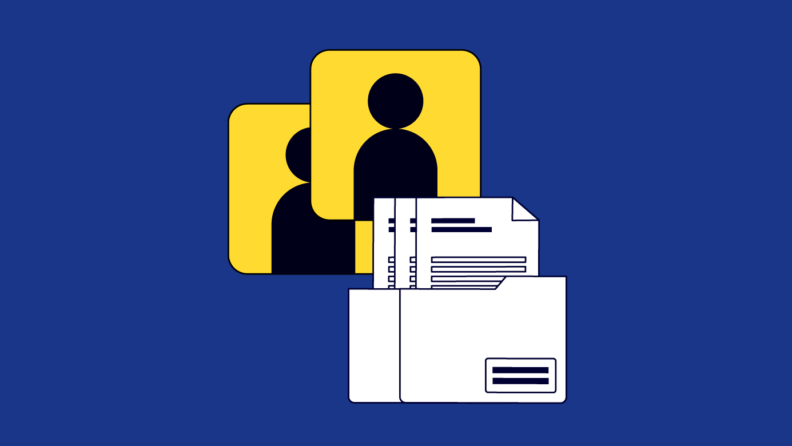Imagine losing a sale because you didn't have the right customer insights at your fingertips. Frustrating, right?
Unfortunately, this happens way too often due to poor customer data management (CDM). Effective CDM is a game-changer for engaging with your audience, helping you deliver personalized, data-driven marketing and boosts customer experiences, building loyalty.
What Is Customer Data Management (CDM)?
CDM consists of collecting customer information from various touchpoints, structuring it, and pulling out meaningful insights.
At the core of CDM strategy is Customer Relationship Management (CRM) software. CRMs capture and store customer interaction data, offering a complete view of behaviors and preferences. This turns raw data into actionable insights, ensuring you never miss an opportunity and that all teams are aligned.
Benefits Of Customer Data Management
CDM can transform your business, enhancing operations and customer engagement. Here’s how:
Personalized Marketing
CDM empowers businesses to launch highly targeted marketing campaigns. By analyzing detailed customer segments and behavioral data from CRM systems and other sources, you can create personalized messages that resonate. Imagine crafting an email campaign that speaks directly to a customer’s past purchases and browsing history.
Such targeted efforts significantly boost engagement and ROI.
Improved Customer Experience
With a 360-degree view of your customers—enriched by CRM data—you can deliver truly personalized experiences. This means you can go beyond simply using a customer’s name in an email. You’ll understand their preferences, purchase history, and interactions across all touchpoints.
For example, you can offer customized product recommendations or tailor customer service interactions to meet specific needs. These personalized experiences make customers feel valued and understood.
Increased Customer Loyalty
Strong customer relationships are built on understanding and meeting customer needs. Effective data management helps you do just that. By leveraging insights from different types of CRM software, you can identify your most loyal customers and reward them, address issues proactively, and create experiences that keep them coming back.
Data-Driven Decision Making
Customer data provides a goldmine of insights for strategic decision-making. Analyzing this data helps you understand market trends, customer preferences, and performance metrics. For example, using data to identify popular products can guide new product development, while sales forecasting can optimize inventory and staffing.
These data-driven decisions lead to smarter strategies and better business outcomes.
Increased Sales and Revenue
Ultimately, effective CDM translates to increased sales and revenue. Leveraging CRM data, you can refine your sales strategies to better meet customer needs, leading to higher conversion rates. Personalized marketing, improved customer experiences, and enhanced loyalty all contribute to a healthier bottom line.
Need more proof? The RevOps Team made a list of 20 statistics showing the impact of CRM on a business.
Challenges Of Customer Data Management
Having a customer data management strategy is crucial for business success. But implementing it comes with its own challenges.
Data Silos
Sales, customer service, and marketing teams often store collected data in separate systems, creating data silos. This fragmentation stops you from having a unified customer view, leading to inconsistent insights and disjointed customer experiences. To break down these silos, you need strong integration strategies and encourage cross-departmental collaboration.
Data Quality Issues
Data can become inaccurate, outdated, or incomplete due to manual errors, lack of standardization, and system mismatches. When you use this poor data, your insights and decisions become unreliable and incorrect. That's why you must continuously monitor and clean your customer databases.
The challenge? It's quite time-consuming. Automated tools can help, sure. But they can be expensive, plus you'll need skilled people to use them.
Compliance Concerns
Compliance with data protection regulations like GDPR or CCPA adds another layer of complexity. These laws set strict guidelines for data collection, storage, and processing. Non-compliance can lead to hefty fines and damage your reputation. Additionally, balancing legal requirements with running your business smoothly means having solid compliance frameworks, regular training, and frequent policy reviews.
It's important to note that these regulations are always evolving. You need to keep adjusting your data management practices to stay compliant.
Data Integration Difficulties
Bringing together data from different sources and systems into one platform is technically tough.
You probably use multiple tools—CRMs like Zoho CRM, marketing automation tools like HubSpot, and social media analytics like Sprout Social—that need to work well together. This requires advanced solutions, strong APIs, and sometimes custom development.
For example, linking legacy systems with modern analytics platforms often needs custom solutions and IT expertise, which can be costly and disruptive. Without this seamless integration, you won't have a complete view of your customers.
Scalability Issues
As your business grows, the amount of consumer data increases manifold. Handling this growth requires strong infrastructure and advanced analytics tools to manage and process large datasets efficiently.
For instance, expanding internationally might show that your current infrastructure can't handle different types of data and larger volumes. This means you'll need to invest in scalable solutions and cloud technologies and train your staff to use new tools and processes effectively.
Key Considerations To Improve CDM
The whole premise of customer data management is ensuring your data is accurate, secure, and compliant. Focusing on these areas lets you optimize your CDM practices and get the most out of your customer data:
Data Governance
Data governance is the backbone of CDM. You need clear policies to prevent data silos, reduce redundancy, and ensure everyone handles data correctly. Here’s how to go about this:
- Accuracy: Validate data at entry points to prevent errors and do regular audits and clean-ups. Automated data validation tools in your CRM can flag and correct inaccuracies in real-time.
- Security: Develop robust data security policies, including encryption, user access controls, and regular security audits. Use role-based access in your CRM to ensure sensitive customer information is only accessible to authorized personnel.
- Compliance: Stay updated with applicable regulations like GDPR and CCPA. Ensure your data governance framework includes mechanisms for data tracking and reporting to prove compliance.
Data Security
Next comes implementing robust data security measures within your CRM and other storage solutions.
Start by encrypting customer data both in transit and at rest to keep it safe from unauthorized access. Make sure your CRM has built-in encryption features. Then, implement strict access controls by using multi-factor authentication and requiring regular password updates as part of your CRM’s security measures.
Additionally, train your team on data security best practices and create an incident response plan to further protect your customer data.
Data Quality
According to a Validity report, 44% of respondents estimated their company loses one-tenth of their annual revenue due to poor quality data in their CRM. Follow these strategies to maintain data quality:
- Data management: Regularly clean your CRM data to remove duplicates, correct inaccuracies, and update outdated information. Automated data cleansing tools can streamline this process.
- Standardization: Establish data entry standards to maintain uniformity. Set rules for how customer names, addresses, and other details should be entered into the CRM.
- Real-time updates: Implement systems for real-time data updates, ensuring all teams have the latest information for reliable insights and effective customer interactions.
Customer Data Privacy
Sticking to data privacy regulations like GDPR and CCPA is crucial when managing customer data. Not only does this protect your business from legal risks, but it also builds customer trust.
For instance, many companies experienced a boost in customer satisfaction and trust after becoming GDPR compliant—and it's not without reason. You see, GDPR compliance involves getting clear consent for data collection, allowing customers to access their data, and setting up processes for data deletion upon request. It also ensures greater transparency in your data practices.
Customers view these efforts as a sign of respect for their privacy, showing your commitment to protecting their information. This, in turn, makes them more likely to do business with you.
Choosing the Right Customer Data Platform
A Customer Data Platform (CDP) works with your CRM to enhance your CDM strategy by collecting and consolidating data from various sources. This gives you a full view of customer interactions and behaviors, which then facilitates data-driven decision-making.
Not all CDPs are the same, though. When exploring options, consider the following:
- Integration capabilities: The CDP should integrate seamlessly with your existing CRM and other data sources to provide a comprehensive view of customer interactions and behaviors.
- Data governance and security: It should support your data governance and security policies with features like data lineage tracking, encryption, and compliance management.
- Analytics and insights: It should offer advanced analytics capabilities, such as predictive analytics and segmentation. This helps in personalizing marketing efforts and improving customer engagement.
CDM & CRM—The Perfect Match
Effective customer data management is your key to unlocking customer insights for personalized marketing, improved experiences, and increased loyalty. To get the most out of your customer data, focus on data governance, security, quality, and privacy. This approach also enhances your CRM strategy by providing a unified view of customer interactions, driving data-driven decisions, and boosting revenue.
Ready to transform your customer relationships and grow your business? Dive into effective CRM strategies or check out the best CRM software.
Let Our Experts Help You Find A CRM
Get paired with a tech advisor to find CDM and CRM solutions for your business.



